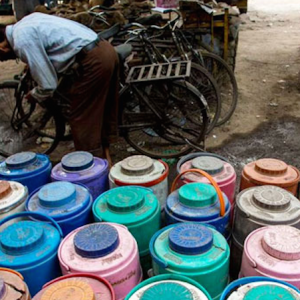The Stream, December 17: White House Announces New Water Initiative
The Global Rundown |
The U.S. White House called on the private sector this week to help innovate and invest in technology to improve water management. A budget proposed by the U.S. Congress would keep funding for the Great Lakes Restoration Initiative at its current level, while efforts to keep invasive Asian carp out of the Great Lakes have stalled. Italy announced it will send troops to provide security for workers repairing Iraq’s Mosul Dam. The company behind the largest desalination plant in the United States is planning 10 more for the country.
“Water is a huge challenge in this country, and I think we all know that. It’s important we have all hands on deck.”–Sally Jewell, U.S. Secretary of the Interior, on a new initiative announced by the White House to urge private sector innovation in water management, including water monitoring and conservation technology. (USA Today)
By The Numbers |
450 troops Number Italy plans to deploy to Iraq’s Mosul Dam in order to protect workers who are making repairs to ensure its stability. The dam was previously captured by Islamic State militants. Reuters
$300 million Amount earmarked for the Great Lakes Restoration Initiative under a new budget proposed by Congress. The U.S. federal program, started in 2010, aims to restore habitat and reduce pollution in the lakes. Associated Press
Science, Studies, And Reports |
Despite years of study, a plan to definitively stop invasive Asian carp from reaching the Great Lakes has eluded an advisory panel tasked with finding solutions. In lieu of a permanent fix, more than $US 300 million has been spent to slow the fish, which could upend the sport fishing industry in the Great Lakes. Associated Press
On The Radar |
The company behind the United States’ largest desalination plant, which opened in California this week, is planning 10 more plants across the country. Demand for desalination facilities is increasing around the world as populations grow and freshwater supplies become scarcer. Reuters
A news correspondent for Circle of Blue based out of Hawaii. She writes The Stream, Circle of Blue’s daily digest of international water news trends. Her interests include food security, ecology and the Great Lakes.
Contact Codi Kozacek







Leave a Reply
Want to join the discussion?Feel free to contribute!